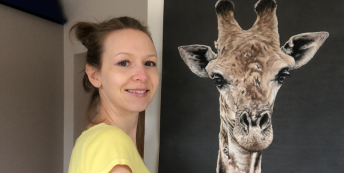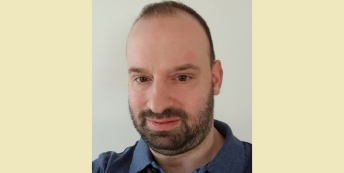“I knew that ultimately I would be unfulfilled.”

What work were you doing previously?
I was in banking.
I had a mixture of contract and permanent roles for about five years.
What are you doing now?
I'm a psychotherapist.
I also train and supervise other therapists, and more recently, I've become a writer and blogger too.
How did you feel in your work before you decided to make the change?
I wasn't unhappy per se, but I knew that a career in banking could not sustain me.
I knew that ultimately I would be unfulfilled.
Why did you change?
I'd always known that banking was not for me in the long term.
In my very first contract at Goldman Sachs, I remember negotiating leaving early once a week to get to my volunteering at The Samaritans (the very first step in my transition).
It didn't go down that well! But I managed it.
When was the moment you decided to make the change?
There was no 'one' moment.
The change was a medium-term plan that I worked towards for a few years alongside banking.
How did you choose your new career?
I think I'd always known I wanted to be a psychotherapist.
When I was in school, we had a 'peer support' scheme that I jumped at the chance to be involved in.
I just got a bit distracted by economics (that's what I studied the first time I went to university). Even then, when I was at university, I gravitated towards an economics professor who worked on happiness.
Paying attention to what I naturally gravitated towards was important, not working against myself!
Are you happy with the change?
Hell yes!
I'm utterly made up to be doing a job I love. It's my vocation.
What do you miss and what don't you miss?
I miss the friends I made, the laughs and camaraderie.
Now I work predominantly independently and from home.
However, I love the tranquility (usually!) and autonomy I have now. It's gold.
How did you go about making the shift?
I saved money, made sacrifices, and retrained alongside working.
What didn't go well? What wrong turns did you take?
Perhaps in retrospect I was moving faster than I needed to, i.e. putting myself under unnecessary pressure given that I wasn't unhappy per se in banking.
I could have given a bit more time to the transition, and been a bit more patient.
How did you handle your finances to make your shift possible?
Working in banking financially facilitated my therapy training to a large extent, although I still had to be frugal.
I also lived with my mum for a year (thanks, Mum!). I (and the people around me) made short term sacrifices that have paid off for me, even if tricky at the time.
What was the most difficult thing about changing?
What I was losing – work colleagues who were friends (whom I saw daily).
Also losing the stability and structure that comes from that kind of employment.
I did adapt, though, in a pretty short space of time. I found other fulfilling ways to build structure into my life. For example, gym classes during the day, uncool as it sounds! This meant I got out of the house and saw some faces regularly.
I also made sure I left the house or had contact with others during the day by going to exhibitions or out for coffee. I then had the best of both worlds – hurrah!
What help did you get? 
Lots of support from friends and family that I'm very grateful for.
I can't remember one person not championing my decision to move fields.
What resources would you recommend to others?
1. Other people – chew it over with others.
2. Yourself – take time to reflect on your priorities for somewhere you'll be spending so much of your life.
3. Therapy! – it could be an invaluable resource. For me, therapy's a given for big decisions.
4. Time – take time over it, if you can.
What have you learnt in the process?
Rather than what I've learnt, for me the experience has affirmed the importance of following my instincts.
It's also confirmed that it was the right thing to prioritise fulfilment over what might have been easy (to keep things as they were).
And it's taught me that further changes are OK! For example, I'm now writing more. In the last couple of years I started a blog on my site that people actually read, it seems. I have also had a few pieces published.
Having made a successful transition once, I've had confidence to try experimenting and learning about the world of writing / journalism. That is, to adapt to my changing needs and interests.
Expecting to be in one career alone for a whole lifetime doesn't seem that natural, at least for me.
What would you advise others to do in the same situation?
Think about it, play with it, talk to people.
Despite things having worked well for me, I'm not flippant about the financial toll, amongst other complexities of a career change.
However, I can also say, from listening to clients for nearly a decade, that a lack of fulfilment at work, the place that we spend so much of our time, can be a bugger for mental health. And there's not much that is more important than that.
To find out more about Rakhi's work, visit www.chandcounselling.co.uk.
What lessons could you take from Rakhi's story to use in your own career change? Let us know in the comments below.



